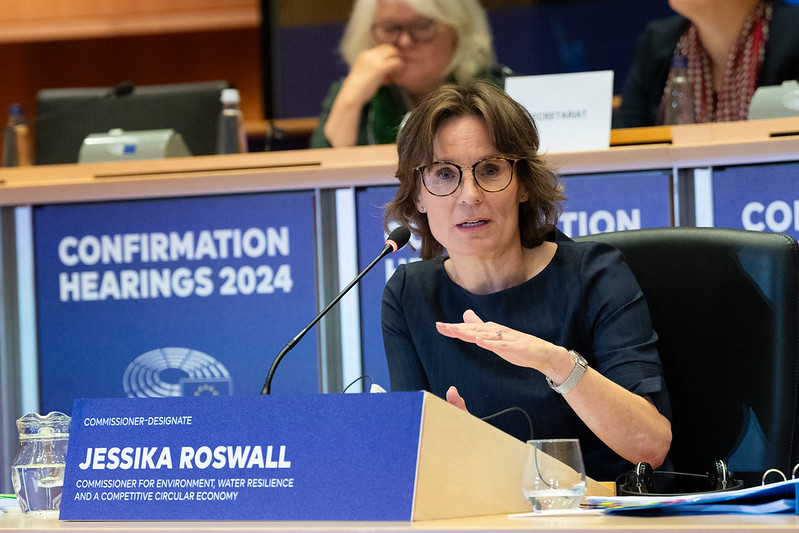EU environment chief sees opportunity in recycled raw materials

Boosting the use of recycled raw materials is an opportunity that the European Union “can’t miss” in its shift toward a sustainable economy while bolstering its competitiveness, its new environment commissioner said.
The 27-nation bloc is seeking to strengthen the security of raw materials and fend off challenges from China and the US without compromising its goal to reach climate neutrality by the middle of the century. Access to minerals such as lithium, cobalt or copper is essential for the EU economy’s clean overhaul, and demand is set to increase during the European green transition.
“The use of secondary critical raw material today is too low,” Jessika Roswall said in an interview on Bloomberg TV. “But if we could have the possibility to use it more, it will both increase the amount of critical raw material and hopefully also lower the price.”
The EU is under growing pressure from businesses to foster the investment needed to build a sustainable economy and ensure access to key raw materials. To reduce its dependence on Chinese suppliers, the EU launched its Critical Raw Materials Act in 2023, setting the goal of producing at least 40% of its annual consumption of strategic raw materials by the end of this decade.
The bloc should also stay the course on increasing domestic production of raw materials, improve the permitting process for new mining projects and simplify the environmental rules, according to Roswall.
“So we need mines in the European Union because we also need to be resilient ourselves and always bear in mind that it has to be an environmental high standard,” she said.
Improved access to raw materials is set to be one of key elements of the Clean Industrial Deal, a new European strategy to bolster the region’s competitiveness on the way to net zero, set to be unveiled on Feb. 26. While the details are still scarce, the industry has demanded steps such as financial support, scaling up domestic mining, free trade agreements, tools to address unfair competition and expanding the scope of the Critical Raw Materials Act.
For its part, the European Commission has also floated the idea of pooling demand and creating a joint platform for the purchase of critical raw materials needed for clean technologies.
(By Ewa Krukowska and John Ainger)
{{ commodity.name }}
{{ post.title }}
{{ post.date }}




Comments